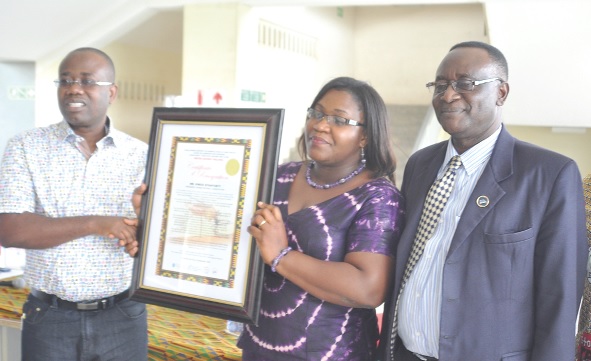Black Stars continue to fight against Malaria
Arku Jasmine
Sports News
2 minutes read
 A one-day sensitisation workshop to control and eliminate malaria has been held in Kumasi in the Ashanti Region.
A one-day sensitisation workshop to control and eliminate malaria has been held in Kumasi in the Ashanti Region. It was organised by the Johns Hopkins University Centre for Communication Programme, United Against Malaria Partnership, World Cup Football and Malaria Control Advocacy Event, in collaboration with the Ashanti Regional Directorate of the National Malaria Control Programme.
The Ashanti Regional Director of Public Health of the Ghana Health Service (GHS), Dr Joseph Oduro, said malaria was one of the major killers in Africa, especially in Ghana.
He, however, said the pandemic had reduced to about 70 per cent in Ghana due to regular and intensive campaigning, education and the distribution of free insecticide-treated mosquito nets by the Ghana Health Service.
Dr Oduro said health staff in the region had been well trained in effective and early detection of malaria and related diseases and stressed the need for pregnant women to seek early treatment.
The doctor indicated that the only problem facing the fight against malaria was lack of financial support from the development partners.
FA President, Kwesi Nyantakyi, said his outfit had been a founder member of the fight against the disease since March 2010.
He said the GFA was proud to accept the programme and the adoption of malaria as its corporate social responsibility and hoped it would be emulated by other African FAs as well as the Confederation of African Football (CAF).
He quoted Alhaji Issa Hayatou, President of CAF, that Africa cannot compete on the global pitch if it did not have players and communities that were free from malaria.
Mr Nyantakyi said the FA, as a pacesetter, was committed to stepping up its efforts at using football as a vehicle to raise awareness about malaria and promote practices that would encourage effective prevention and treatment.
Mr Emmanuel Fiagbey, the Country Director of Johns Hopkins University-Centre for Communication Programme, said the achievement in the fight against the disease was encouraging.
He said in the next two years, Africa would need $3.6 billion to bridge the funding gap in malaria control.
Mr Fiagbey pointed out that malaria control interventions do not only save lives but also accelerate progress in health and development, which included reducing school absenteeism, fighting poverty and improving maternal and child health.
The players, FA President, Coach Kwasi Appiah and team’s former doctor, Dr Percy Annan, were honoured by the Johns Hopkins University Centre for Communication Programme for their contribution to the fight against the disease.
By John K. Essel/Daily Graphic/Ghana
